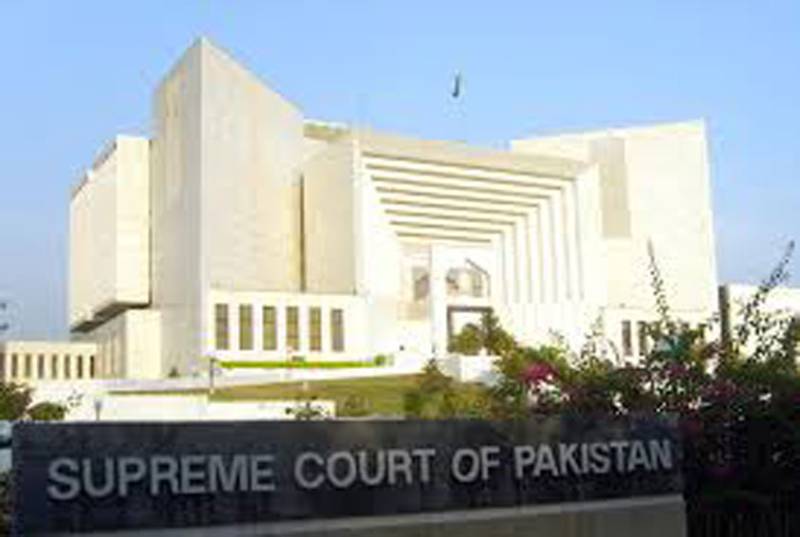ISLAMABAD - The Supreme Court has reserved its judgment regarding the definition and interpretation of the term Terrorism.
A seven-judge larger bench headed by Chief Justice of Pakistan Asif Saeed Khan Khosa on Tuesday assembled to ascertain what constitutes terrorism and heard the matter.
Several identical appeals challenging death sentences and life imprisonments under Anti-Terrorism Act and Pakistan Penal Code were also fixed for hearing before the larger bench.
Legal experts believe that Chief Justice Khosa, who has given several landmark judgments on legal questions regarding criminal cases, through his judgment will also end the confusion by clearly defining the meaning of terrorism and differentiating an ordinary crime and terrorist activity.
During the hours’ long proceeding, the top court after raising question on lacunas in anti terrorism law observed that it is the responsibility of legislature to clarify these lacunas.
Chief Justice Khosa observed that this court can only interpret law and it cannot make any addition to it adding that the legislation should amend the law to do away with the lacunas.
The other members of the bench include Justice Mushir Alam, Justice Manzoor Ahmed Malik, Justice Sardar Tariq Masood, Justice Ijazul Ahsan, Justice Mazhar Alam Miankhel and Justice Mansoor Ali Shah.
During the proceedings, Assistant Prosecutor General of Punjab argued that compromise or settlement between the disputing parties can take place at any stage of proceedings but it cannot be taken place on filing of the application from one party, adding the decision on compromise is always given by court before which the case is pending adjudication.
The Chief Justice observed that compromise can take place in criminal cases and the law regarding settlement between disputing parties cannot be changed. But, the Chief Justice further remarked that the anti terrorism law does not allow any settlement between the parties.
Justice Shah remarked that matter regarding interpretation of the term terrorism is vast. The larger bench raising questions observed that criminal cases have been mixed up with the cases fall within the ambit of anti terrorism law.
The Chief Justice cited the anti terrorism law saying the said law states that designed threat to coerce and intimidate democratic rally means terrorism. He further questioned who would determine if a rally is democratic or nondemocratic adding that the anti terrorism law is excessively unclear. He observed that under anti-terrorism law, terrorism means designed threat to spread insecurity in society but every crime also spread insecurity in the society. For example, he added, an attempt of burglary in a house effects entire area in terms of insecurity.
Justice Ahsan questioned whether a person, attempt to murder one person, kills fifteen people will constitute a case of terrorism.
An advocate Burhan Moazzam Malik opined that ordinary criminal cases are being referred to Anti Terrorism Courts in order to keep them functional while terrorism cases are being referred to Military Courts.
Chief justice observed that United Nation still could not define the meaning of terrorism adding that even United State could not reach at any conclusion on what constitutes terrorism.
He remarked that the cases are referred to Anti Terrorism Court and Military Court when hype in public and media is created. It seems that there is some psychological issue, observed Chief Justice, adding that when a case requires to be treated especially it is referred to special courts.
Chief Justice Khosa expressed his determination of interpreting what constitutes as terrorism observing that ordinary cases are being adjudicated by the Anti Terrorism Court to overcome the hype and to silent the masses for the time being.
He further observed that a heinous crime is not always the case of terrorism, adding that forcefully imposing thoughts on others is also a kind of terrorism. He further observed that a bomb planted in train even if not blasts still constitutes the offence of terrorism and will be adjudicated in Anti Terrorism Court.
Advocate General Islamabad argued that it seems that police has license of referring every case to anti terrorism court. However, the Chief Justice responded that it is government responsibility to control the police. The top court then reserved its judgment on the matter.






